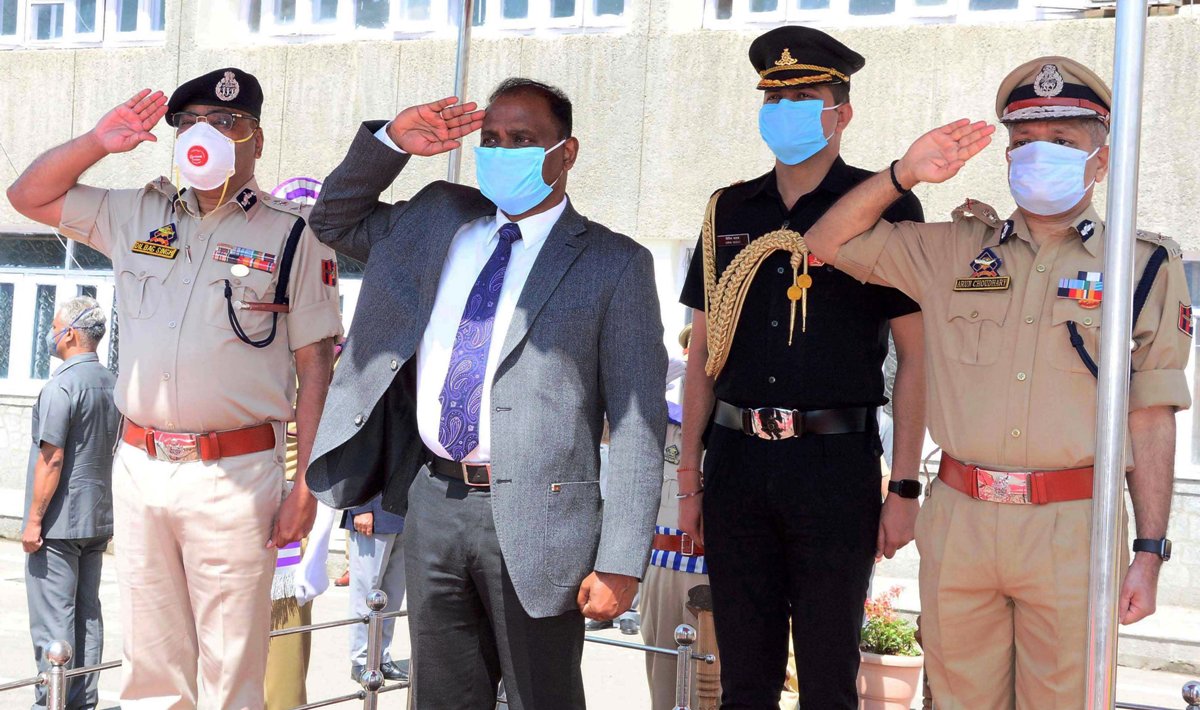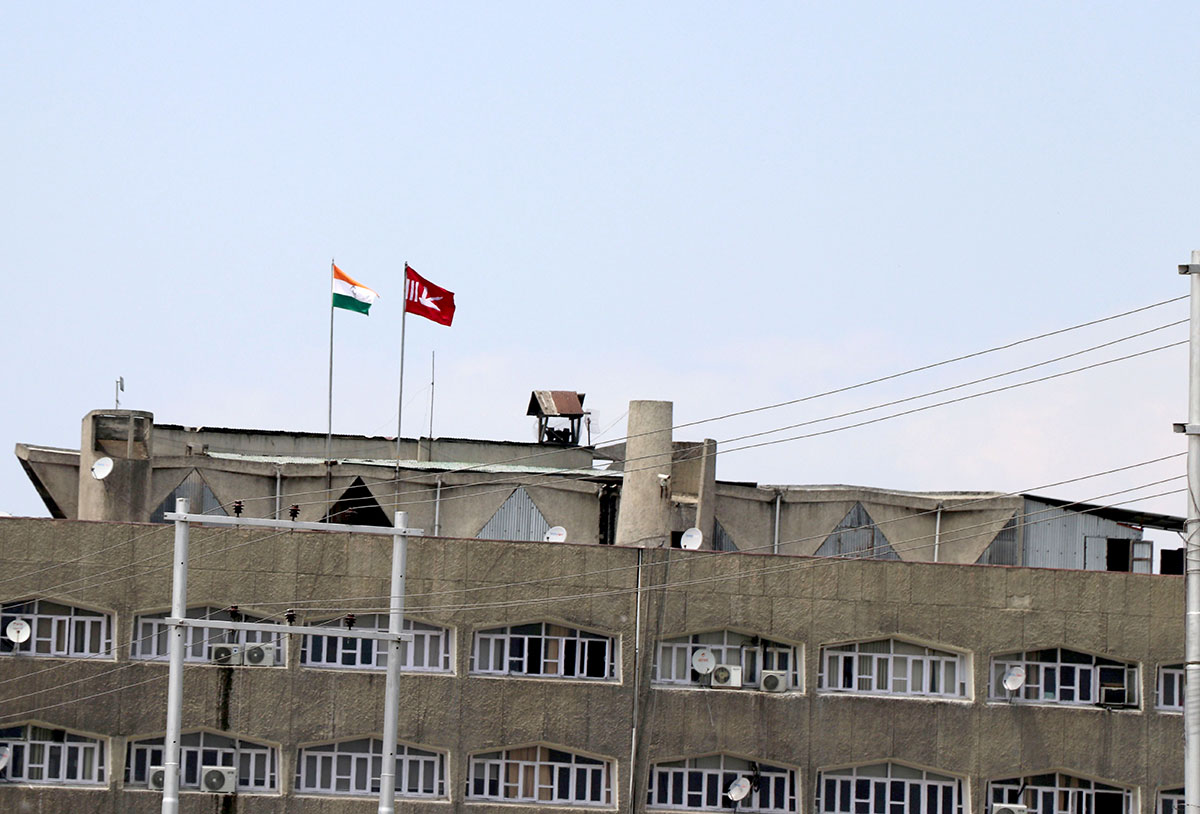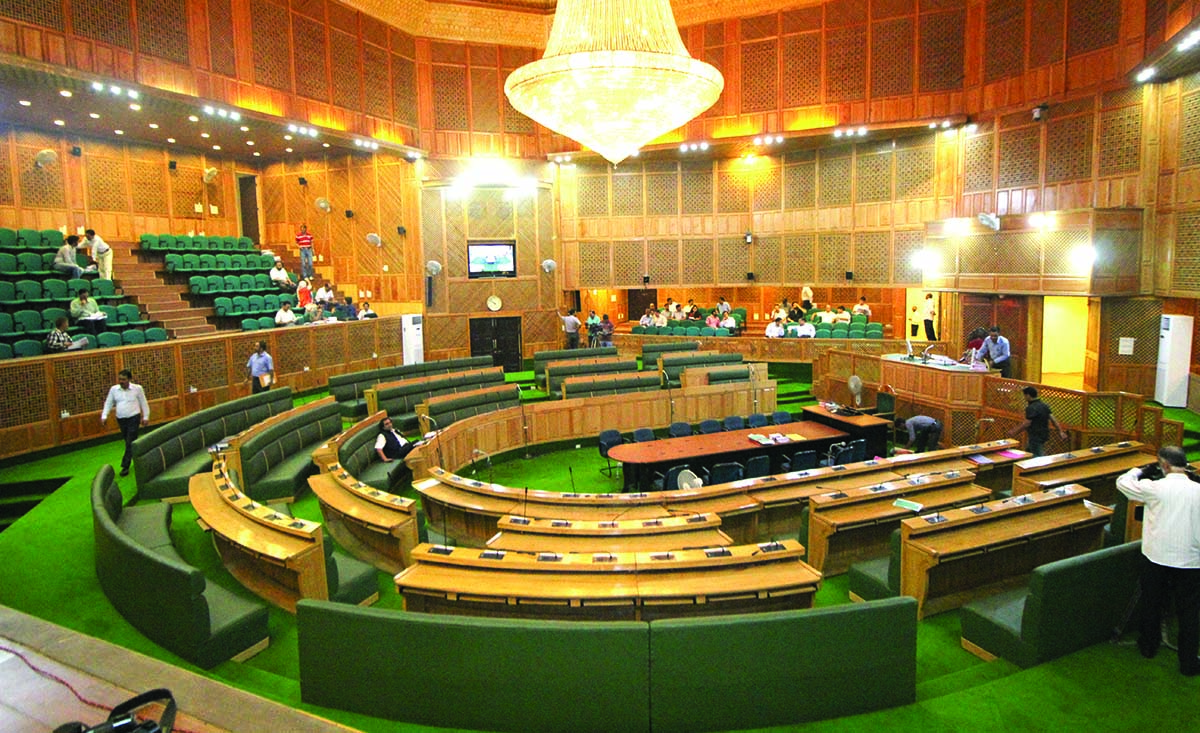by TarushiAswani
As BJP preps up its campaign for 2021 assembly elections, completing over 60 virtual rallies in several states, the party is now gearing up to digitally fight the Bihar assembly elections with 9500 IT cell heads for spreading its political messages to the people. In the last two months, the party has formed 50,000 WhatsApp groups.

Meanwhile, what about the state whose statehood was robbed overnight by the BJP?
On August 5, 2019, the BJP decided to demote the state of Jammu and Kashmir to a Union Territory, also severing a portion of Kashmir to carve out the UT of Ladakh. Since then, massive human rights violations, increased stifling of dissent, arbitrary arrest of mainstream politicians and civilians has assumed a curve that refuses to flatten even after 11 months. Apart from the exceptionally arbitrary decision of reading down Article 370 and 35A, the reduction of the state legislature into a redundant assembly of elected representatives is deeply worrisome.
Now Union Territories, Jammu and Kashmir and Ladakh are under Lieutenant Governors; Girish Chandra Murmu and Radha Krishna Mathur, respectively.
Jammu and Kashmir will now replicate the legislature of Puducherry, while Ladakh is to function as a UT without a legislature, like Chandigarh. The Jammu and Kashmir Reorganisation Act, 2019, register 83 constituencies. Earlier, the Jammu and Kashmir state assembly had 87 members excluding the seats reserved for Pakistan-occupied Kashmir.
The Reorganisation Act decrees that Jammu and Kashmir Assembly will now have 107 seats which will be increased to 114 after the delimitation process which has been projected as a measure to even out the distribution of seats between Jammu and Kashmir divisions. Previously, Kashmir held 46 seats and Jammu held 37. Four seats were with Ladakh. The tenure of the Jammu and Kashmir Assembly is now five years as opposed to the earlier six-year term.
Jammu and Kashmir will now have five Members of Parliament (MPs) and Ladakh will hold two in the Lok Sabha. The four sitting Rajya Sabha Members of Parliament (MPs) shall continue as members of the Upper House from J&K.
The Legislative Council of Jammu and Kashmir now stands annulled. The state of Jammu and Kashmir earlier stood as one of only seven Indian states to have a Legislative Council. The bureaucracy of the erstwhile State would now be divided between the two Union Territories. The officers posted in Jammu and Kashmir will continue to serve as the existing cadre. However, future recruitment is to be undertaken to employ the officers of Arunachal Pradesh – Goa – Mizoram Union Territory (AGMUT) cadre. Laws passed by Parliament are now directly applicable to both Jammu and Kashmir and Ladakh. Earlier, Article 370 insulatedJammu and Kashmir from the application of such laws.

The Jammu and Kashmir Reorganisation Act directs that “Council will aid and advise the Lieutenant Governor on matters that the assembly has powers to make laws”. The LG has been given wide-ranging discretionary powers which will allow them to bypass the council of ministers and dodge the elected executive as well. Although, the police and public do not fall within the domain of the state administration; bills and amendments pertaining to “imposition, abolition, remission, alteration or regulation of any tax” cannot be moved in the assembly without the approval of the LG. The amendment of laws concerning any financial obligations of the UT will also require the prior consent of the LG. Besides, the LG will have direct control over All India Service officers and the Anti-Corruption Bureau.
Indian political history is witness to union territories acquiring statehood, just as all Northeast states acquired statehood after being UTs for a long while. These promotions of UTs to States have occurred in India’s most contested peripheries after powerful movements demanding statehood. Jammu and Kashmir has never before experienced direct Central control, except during President’s rule. So as it appears the BJP government’s move to turn a full-fledged state into a UT raises many questions.
This move of the BJP government yet again is stained with the Hindu-Muslim rhetoric that has always been a part of its functioning.
Jammu and Kashmir is the only Indian state to have a Muslim majority population. According to the Census of 2011, Jammu and Kashmir recorded the Muslim population at 85.67 lakh — which is 68.31% of the total state population of 1.25 crore — and the Hindu population at 35.66 lakh (28.43% of the total).
It is not a surprise that this irked the BJP, as most of their decisions that are high on optics are also anti-Muslim. Be it the abolition of Triple Talaq, the verdict of the Babri Masjid case, the NRC and CAB 2019, all these legislations undermine the fundamental right of Indian Muslims to Islam unconditionally. Then in such a case, why would the only Muslim majority state be spared?

This 68.31% Muslim population was but naturally responsible for electing around 70% Muslim legislators every election, by sheer population size, even when voter turnouts have only turned dismal over the years.
Data provided by the Election Commission of India shows that even as early as 1962, out of the 75 successful candidates for assembly elections, only 26 were non-Muslims. Then again in 1967, only 27 were non-Muslims, further in 1972, 24 non-Muslims won, even later in 1977, 1983, 1987, 1996, non-Muslim victories swung from 23-27 seats maximum.
Post-1990s which recorded brutalities on both the Hindu and Muslim communities, 2002 results yet again held the same result of 28 non-Muslim wins out of a total of 87 seats now. 2008 and 2014 only replicated the earlier results with 27 and 30 non-Muslim wins respectively.
This data makes it amply clear that even if the Government of India decided to abandon the institution of the Jammu and Kashmir Constitution, this 70-74% Muslim Legislature would have continued to retain power election after election. One can still try to fathom BJP’s move of scrapping the constitution, one can try to rationalize scrapping of Article 370, further 35A as well, but turning Jammu and Kashmir into a Union Territory from a State can only be understood as a move to disfranchise this 70% Muslim Legislature.
While many who have perpetually blamed Muslims for wiping out the Pandit population out of the valley, these statistics that range from 1962-2014 are a testament to the fact that Pandits have always been a minority in the region. Even as of 1961, Muslims at 24.5 lakhs made up 68.31% of the state’s population of 35.60 lakh, while Hindus, numbering 10.13 lakh, made up 28.45%.
Now, as the new Jammu and Kashmir State Reorganization Bill states, the absolute powers after the dissolution of the assembly lie with the LG. This is only a systematic measure to disfranchise the mandate that bestows power on the 70% Muslim legislature, which was unchangeable with full statehood for Jammu & Kashmir.
So now, even if a government comes in power, which is very pro-Kashmir, very pro-Muslim, it would be a toothless tiger because now regardless of who holds power in Kashmir, whoever the chief minister is, the office of the LG pushes all other Jammu and Kashmir government offices and officials into the LG’s servitude. In Jammu and Kashmir now the LG is the highest authority with the absolute powers to overrule any decision made by the assembly.

Revisiting the facts of Kashmir’s accession to India, constitutional guarantees were bestowed on the state, understanding the vulnerabilities the state subjects might face. This also empowered the state legislature to alter the definition of a permanent resident or other aspects of the law by a two-thirds majority. The BJP government has killed two birds with one stone, not only has it robbed the constitutionally guaranteed rights of Kashmiris but it has also further disempowered them to rule themselves.
By introducing the new domicile law, the plan is clear in the open, by granting domicile rights to non-Kashmiris, BJP is granting non-Kashmiris the right to vote in assembly elections, the power to alter the Muslim majority mandate to further their motive of muting Muslim masses that today sit as casualties to their belief in Indian democracy.
When the Modi Government tries to stir unity among Indians sparking Nationalism with Ek Samvidhan, Ek Pradhan, Ek Vidhan, where does the condition of demoting a state into a UT figure?

So here, as ECI’s data reveals that elections in the erstwhile State of Jammu, Kashmir and Ladakh have always had a heavily Muslim legislature that is more than any other state in India is the only logical explanation to the UT move. This systematic dissolution of the legislative council and the legal silencing of the legislative assembly undertaken by the Modi government is also symbolic of the dilution of the voice of a 70-year-old institution which was the fortress of Indian democracy in Kashmir.
Concluding the argument, had Jammu and Kashmir been converted into a UT without an assembly, the argument would have been different, but making Jammu and Kashmir a UT with an Assembly, and depriving it of statehood is a brazen declaration that this is only an attempt to permanently change the existing combination of majority Muslim and minority Hindu legislators.
(@tarushi_aswani is an independent journalist. The opinions expressed in this article are those of the author’s and do not purport to reflect the opinions or views of Kashmir Life.















